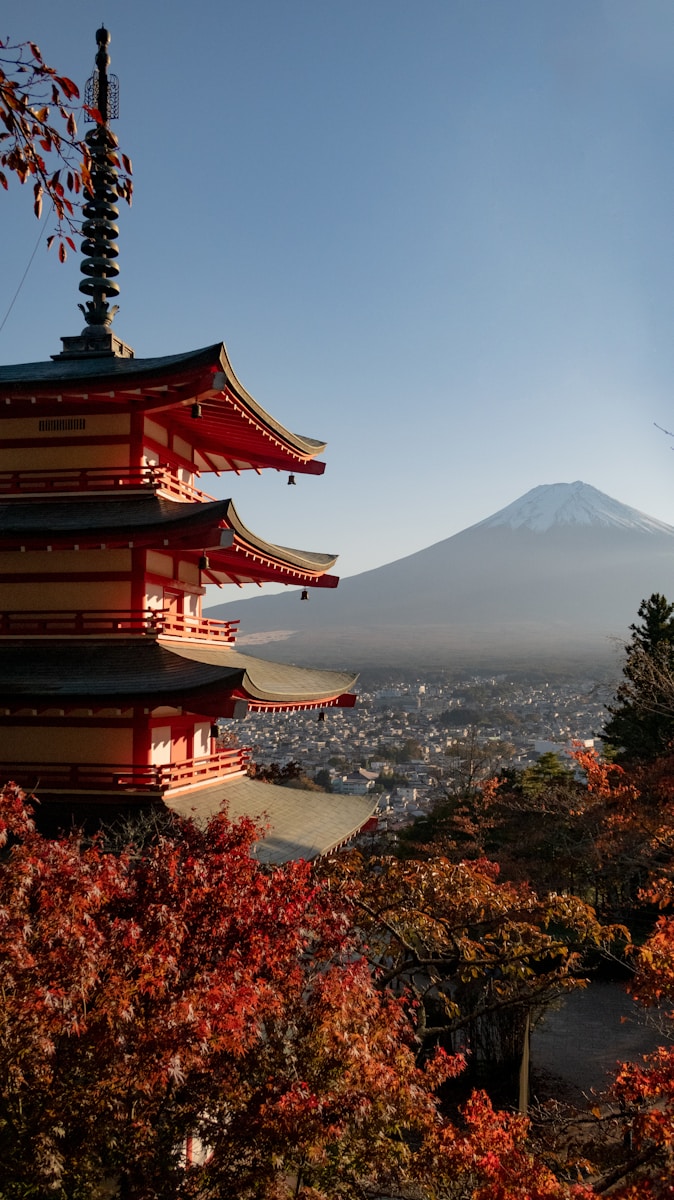Welcome to Japan: A Journey into Culture, History, and Harmony
Japan is a country where timeless traditions blend seamlessly with futuristic innovation. Whether you're a first-time visitor or a returning traveler, understanding the cultural nuances, historical context, and social customs of Japan can greatly enrich your journey.
Why Understanding Japan Matters
Unlike many destinations, Japan operates on unspoken social codes, deep-rooted values, and centuries-old traditions that continue to shape modern life. Knowing even a little about these aspects will not only earn you respect but also open doors to more authentic experiences.
What You'll Discover in This Section
This “About Japan” section serves as your gateway to understanding the soul of the country. Explore each of the following chapters to deepen your appreciation:
-
Japanese Culture & Values – Discover the core beliefs that shape Japanese behavior.
-

-
1-1-1Japanese Culture & Core Values Explained for First-Time Travelers
Contents Understanding Japanese Culture & Core ValuesHarmony (Wa): The Heart of Japanese SocietyRespect for Others: 礼儀 (Reigi)Group-Oriented ThinkingConcepts That Define JapanSeasonal Appreciation & Nature ReverenceMinimalism & AestheticsLanguage as a Mirror of CultureWhy Culture Awareness MattersNext, Learn More About:Understanding Japanese Culture & Core Values Japan's culture is a harmonious blend of ancient traditions and modern sensibilities. Rooted in respect, community, and subtlety, these values influence everything from daily interactions to national holidays. Understanding them will greatly enhance your travel experience. Harmony (Wa): The Heart of Japanese Society At the center of Japanese values is Wa, the principle of harmony. It shapes ...
-
-
History of Japan – From ancient empires to modern cities, see how Japan evolved.
-

-
1-1-2A Brief History of Japan: From Samurai to Modern Society
Contents A Brief Journey Through Japan's Fascinating History1. Ancient Japan: Mythology & Foundations (Pre–710)2. The Classical Era: Nara & Heian Periods (710–1185)3. Feudal Japan: Samurai & Shoguns (1185–1603)4. Edo Period: Peace & Isolation (1603–1868)5. Meiji Restoration & Modernization (1868–1945)6. Postwar Japan: Recovery to Global Power (1945–Present)Why History Matters for VisitorsRelated Cultural GuidesA Brief Journey Through Japan's Fascinating History Japan’s history is a rich tapestry woven from emperors, warriors, isolation, innovation, and resilience. Understanding this backdrop not only deepens your appreciation for temples and castles but also explains much about modern Japanese society. 1. Ancient Japan: Mythology & Foundations (Pre–710) According ...
-
-
Etiquette & Manners in Japan – Learn what to do (and not do) in public spaces.
-

-
1-1-3Essential Japanese Etiquette for First-Time Visitors: What You Need to Know
Contents Essential Japanese Etiquette for First-Time Travelers1. Greetings: The Art of Bowing2. Shoes On or Off? Know the Zones3. Public Behavior: Keep It Quiet4. Dining Etiquette5. Onsen (Hot Spring) Etiquette6. Gifting & Payment Etiquette7. Nonverbal CuesReady to Dive Deeper?Essential Japanese Etiquette for First-Time Travelers Knowing the proper etiquette in Japan isn't just polite—it's key to a smooth, respectful, and enjoyable trip. From bowing and shoes to quiet trains and cash handling, here’s what every traveler should understand before arriving. 1. Greetings: The Art of Bowing Shaking hands is rare. Bowing is the traditional form of greeting, expressing respect and humility. ...
-
-
Religion & Spirituality – Understand Shinto, Buddhism, and seasonal customs.
-

-
1-1-4Religion & Spirituality in Japan: Shinto, Buddhism, and Cultural Traditions
Contents Religion & Spirituality in Japan: A Guide for Curious Travelers1. Shinto (神道): The Indigenous Belief2. Buddhism: A Path of Enlightenment3. Daily Spiritual Practices4. Seasonal Festivals with Spiritual Roots5. Religion in Daily LifeTravel Tips for Spiritual SitesRelated Cultural GuidesReligion & Spirituality in Japan: A Guide for Curious Travelers Japan’s religious landscape is unique—less about strict doctrine and more about rituals, seasonal customs, and quiet spirituality. Shinto and Buddhism are the main religions, but most Japanese people don't consider themselves "religious" in the Western sense. Instead, they live in a culture deeply influenced by spiritual traditions. 1. Shinto (神道): The Indigenous ...
-
-
Social Norms & Communication – Dive into the art of reading the air and non-verbal cues.
-

-
1-1-5Social Norms & Communication in Japan: How to “Read the Air”
Contents Social Norms & Communication in Japan: Navigating the Unspoken1. Reading the Air: 空気を読む (Kuuki wo Yomu)2. Indirect Communication3. The Power of Non-Verbal Cues4. Public Behavior Norms5. Hierarchy & Formality6. Humor & Emotional ExpressionTips for TravelersDeepen Your Cultural AwarenessSocial Norms & Communication in Japan: Navigating the Unspoken Japan is known not only for its beautiful landscapes and rich history but also for its unique social etiquette and communication style. Visitors may find themselves puzzled by what isn't said—because in Japan, what’s left unsaid often matters the most. 1. Reading the Air: 空気を読む (Kuuki wo Yomu) This phrase means “reading the ...
-
Who This Guide Is For
- ✅ First-time travelers who want to avoid cultural faux pas
- ✅ Repeat visitors eager to go beyond sightseeing
- ✅ Long-term residents seeking deeper integration
Key Insights You'll Gain
- 🧠 Why silence is often more powerful than words in Japan
- 🧠 How ancient philosophy influences modern business etiquette
- 🧠 The unspoken rules of body language and indirect communication
Tips for Cultural Immersion
- 🌸 Take part in local festivals and seasonal events
- 👘 Try traditional attire like kimono or yukata during your stay
- 🍵 Participate in a tea ceremony to experience omotenashi (hospitality)
Don't Miss These Guides
These curated articles are essential reading for a well-rounded understanding of Japan:
-
Japanese Culture & Values
-

-
1-1-1Japanese Culture & Core Values Explained for First-Time Travelers
Contents Understanding Japanese Culture & Core ValuesHarmony (Wa): The Heart of Japanese SocietyRespect for Others: 礼儀 (Reigi)Group-Oriented ThinkingConcepts That Define JapanSeasonal Appreciation & Nature ReverenceMinimalism & AestheticsLanguage as a Mirror of CultureWhy Culture Awareness MattersNext, Learn More About:Understanding Japanese Culture & Core Values Japan's culture is a harmonious blend of ancient traditions and modern sensibilities. Rooted in respect, community, and subtlety, these values influence everything from daily interactions to national holidays. Understanding them will greatly enhance your travel experience. Harmony (Wa): The Heart of Japanese Society At the center of Japanese values is Wa, the principle of harmony. It shapes ...
-
-
History of Japan
-

-
1-1-2A Brief History of Japan: From Samurai to Modern Society
Contents A Brief Journey Through Japan's Fascinating History1. Ancient Japan: Mythology & Foundations (Pre–710)2. The Classical Era: Nara & Heian Periods (710–1185)3. Feudal Japan: Samurai & Shoguns (1185–1603)4. Edo Period: Peace & Isolation (1603–1868)5. Meiji Restoration & Modernization (1868–1945)6. Postwar Japan: Recovery to Global Power (1945–Present)Why History Matters for VisitorsRelated Cultural GuidesA Brief Journey Through Japan's Fascinating History Japan’s history is a rich tapestry woven from emperors, warriors, isolation, innovation, and resilience. Understanding this backdrop not only deepens your appreciation for temples and castles but also explains much about modern Japanese society. 1. Ancient Japan: Mythology & Foundations (Pre–710) According ...
-
-
Etiquette & Manners in Japan
-

-
1-1-3Essential Japanese Etiquette for First-Time Visitors: What You Need to Know
Contents Essential Japanese Etiquette for First-Time Travelers1. Greetings: The Art of Bowing2. Shoes On or Off? Know the Zones3. Public Behavior: Keep It Quiet4. Dining Etiquette5. Onsen (Hot Spring) Etiquette6. Gifting & Payment Etiquette7. Nonverbal CuesReady to Dive Deeper?Essential Japanese Etiquette for First-Time Travelers Knowing the proper etiquette in Japan isn't just polite—it's key to a smooth, respectful, and enjoyable trip. From bowing and shoes to quiet trains and cash handling, here’s what every traveler should understand before arriving. 1. Greetings: The Art of Bowing Shaking hands is rare. Bowing is the traditional form of greeting, expressing respect and humility. ...
-
-
Religion & Spirituality
-

-
1-1-4Religion & Spirituality in Japan: Shinto, Buddhism, and Cultural Traditions
Contents Religion & Spirituality in Japan: A Guide for Curious Travelers1. Shinto (神道): The Indigenous Belief2. Buddhism: A Path of Enlightenment3. Daily Spiritual Practices4. Seasonal Festivals with Spiritual Roots5. Religion in Daily LifeTravel Tips for Spiritual SitesRelated Cultural GuidesReligion & Spirituality in Japan: A Guide for Curious Travelers Japan’s religious landscape is unique—less about strict doctrine and more about rituals, seasonal customs, and quiet spirituality. Shinto and Buddhism are the main religions, but most Japanese people don't consider themselves "religious" in the Western sense. Instead, they live in a culture deeply influenced by spiritual traditions. 1. Shinto (神道): The Indigenous ...
-
-
Social Norms & Communication
-

-
1-1-5Social Norms & Communication in Japan: How to “Read the Air”
Contents Social Norms & Communication in Japan: Navigating the Unspoken1. Reading the Air: 空気を読む (Kuuki wo Yomu)2. Indirect Communication3. The Power of Non-Verbal Cues4. Public Behavior Norms5. Hierarchy & Formality6. Humor & Emotional ExpressionTips for TravelersDeepen Your Cultural AwarenessSocial Norms & Communication in Japan: Navigating the Unspoken Japan is known not only for its beautiful landscapes and rich history but also for its unique social etiquette and communication style. Visitors may find themselves puzzled by what isn't said—because in Japan, what’s left unsaid often matters the most. 1. Reading the Air: 空気を読む (Kuuki wo Yomu) This phrase means “reading the ...
-
Get Ready to Explore Japan Differently
Whether you're walking through ancient temples or navigating a crowded Tokyo subway, the insights from this section will help you connect more meaningfully with people and places. Let's begin your cultural adventure through Japan.



